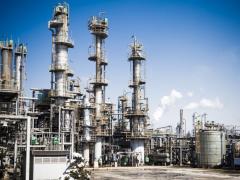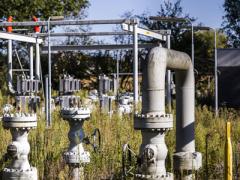Decarbonisation options for Large Volume Organic Chemicals production, SABIC Geleen
This report describes the current situation for SABIC’s large volume organic chemicals (LVOC) production at Chemelot industrial complex, in Geleen, The Netherlands. The report also explores the options and conditions for its decarbonisation. It is part of the MIDDEN project (Manufacturing Industry Decarbonisation Data Exchange Network) initiated by PBL and TNO. The project aims to support industry, policymakers, analysts and the energy sector in their common efforts to achieve deep decarbonisation.
Large volume organic chemicals production at Chemelot
There are two steam crackers owned by SABIC at the Chemelot cluster. Since the cracking section is the most energy intensive step, the decarbonisation options mostly focus on decreasing the CO2 emissions from this process.
The processes include lower olefin production via steam cracking, butadiene recovery, benzene extraction, pyrolysis gasoline stabilisation and recovery and Methyl tert-butyl ether (MTBE) production. The products include ethylene, propylene, butadiene, benzene, hydrogen, MTBE, pyrolysis gasoline, acetylene, and fuel oil.
Decarbonisation options
The decarbonisation options studied include furnaces and steam generation electrification, hydrogen as fuel substitute, plastic waste oil and bio-based naphtha as co-processed feedstock and alternative olefins production via methanol to olefins process.
Authors
Specifications
- Publication title
- Decarbonisation options for Large Volume Organic Chemicals production, SABIC Geleen
- Publication date
- 4 May 2021
- Publication type
- Report
- Page count
- 66
- Publication language
- English
- Product number
- 3718




